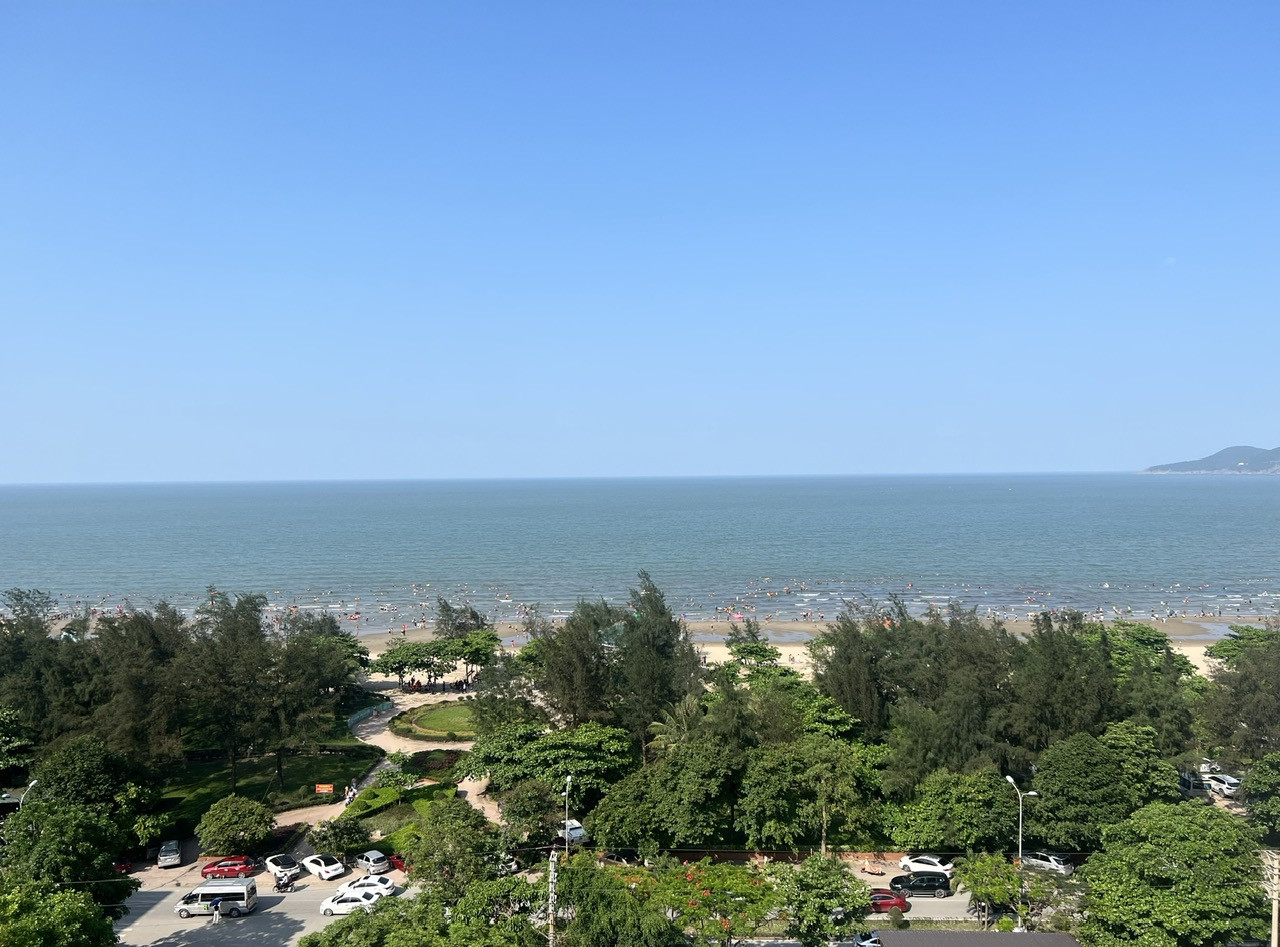Professor Ha Vinh Tho, an overseas Vietnamese residing in Switzerland, served as the Director of the Gross National Happiness (GNH) Center in Bhutan from 2012 to 2018.
In a recent interview with VietNamNet, he shared his perspectives on Vietnam's bright spots and global trends, as well as key considerations on the journey to building a happy nation.

Efforts to improve happiness indicators
Professor, in recent years, Vietnam has continuously risen in rankings in the World Happiness Report. In your view, what are the positive factors that have brought about these results?
Professor Ha Vinh Tho: Vietnam’s improvement in the World Happiness Report rankings is due to several factors, such as: significant socio-economic development, improvements in healthcare and education, as well as a strong improvement in awareness of community and family values.
In addition, Vietnam has made great efforts to preserve cultural heritage.
In 2023, Vietnam rose from 83rd to 79th place, ranking first in Southeast Asia. In 2024, Vietnam ranks 54th out of 143 surveyed countries/territories but ranks 4th in Southeast Asia. It seems that while Vietnam is making encouraging progress, other countries in the region are advancing even faster. What are your comments on this?

Professor Ha Vinh Tho: Vietnam’s gradual progress and the faster pace of neighboring countries reflect the dynamic and multifaceted nature of happiness and development.
Vietnam's approach emphasizes economic progress, social cohesion, and cultural identity, offering a unique path to happiness. However, this approach does not always align with the metrics used in the World Happiness Report.
Nevertheless, I think Vietnam should analyze whether its environmental conservation and restoration efforts have made sufficient progress compared to other Asian countries.
Bhutan is known as one of the happiest countries in the world. Having served as the Director of the Gross National Happiness Center in Bhutan, in your view, what similarities does Vietnam share with Bhutan in efforts to develop happiness indicators?
Professor Ha Vinh Tho: Both Vietnam and Bhutan prioritize cultural preservation and social cohesion, which are indispensable components of Gross National Happiness (GNH). Both countries share traditional values inspired by Buddhism and ancestor worship, valuing independence and pride in their distinct identities.
However, Bhutan has officially adopted GNH as a development philosophy focused on measuring and promoting psychological well-being, good governance, and sustainable socio-economic development. Vietnam could benefit from adopting similar policies and measurement tools for well-being, placing more emphasis on happiness alongside economic growth.
Vietnam’s economic and technological development is much faster than Bhutan’s. Rebuilding the country after decades of war was extremely necessary, and Vietnam's development can be considered a miracle. But now is the time to balance economic growth with environmental sustainability.

GNH is increasingly important in the world of integration and globalization
How do you assess the importance of GNH in the world of integration and globalization today?
Professor Ha Vinh Tho: GNH is increasingly important in an integrated and globalized world because it offers an alternative to GDP-centered development models. Some countries have been inspired by Bhutan's GNH, beginning to incorporate happiness and well-being metrics into their policy planning and budgeting processes.
For example: New Zealand launched the "Well-being Budget" in 2019, focusing on mental health, reducing child poverty, addressing inequalities faced by indigenous Maori and Pacific peoples, advancing digital development, and transitioning to a low-emission sustainable economy.
The UAE appointed a Minister of Happiness in 2016, aiming to place the country among the top 5 happiest nations worldwide through a range of programs and initiatives.
Finland, often leading the World Happiness Report, incorporates a variety of well-being measures into its government policies, prioritizing social equality, welfare, education, and environmental sustainability.
Iceland has implemented many measures to ensure happiness and well-being for its people, focusing on gender equality, the environment, and social welfare.
Scotland launched the National Performance Framework, including well-being indicators alongside economic, health, and social metrics to guide policy development.
These examples illustrate the growing international interest in considering happiness and well-being as essential components of development and national policy-making, beyond traditional economic growth metrics.
By emphasizing comprehensive prosperity and sustainability, GNH can enhance national competitiveness by fostering a happier, more sustainable society. It can also attract global partnerships, sustainable investments, and international support for equitable and sustainable development.

There is an opinion that Gross National Happiness (GNH) is even more important than Gross Domestic Product (GDP). What do you think about this opinion?
Professor Ha Vinh Tho: Economic growth alone cannot ensure well-being and happiness. Sustainable development, environmental conservation, cultural preservation, and social welfare are essential for a complete and happy society.
This idea challenges traditional development models, advocating for a balanced approach that considers both material and non-material aspects of happiness.
What are the fundamental components of the Gross National Happiness Index?
Professor Ha Vinh Tho: GNH includes nine domains: psychological well-being; health; education; time use; cultural diversity and resilience; good governance; community vitality; ecological diversity and resilience; and living standards.
These domains provide a comprehensive framework to evaluate and promote the prosperity of individuals and society as a whole. They emphasize balancing external structural and systemic conditions to create a conducive environment for development with “happiness skills” or internal conditions that support physical and mental well-being.

What opportunities and challenges does technological development present for the development of the GNH index globally and in Vietnam?
Professor Ha Vinh Tho: Technological development offers both opportunities and challenges for GNH. While technological advances can improve quality of life, promote sustainable development, and provide innovative solutions to social and environmental challenges, they also risk exacerbating inequality, fostering consumerism, and alienating individuals from nature and community. Balancing these factors is crucial to promoting GNH in the context of global technological changes.